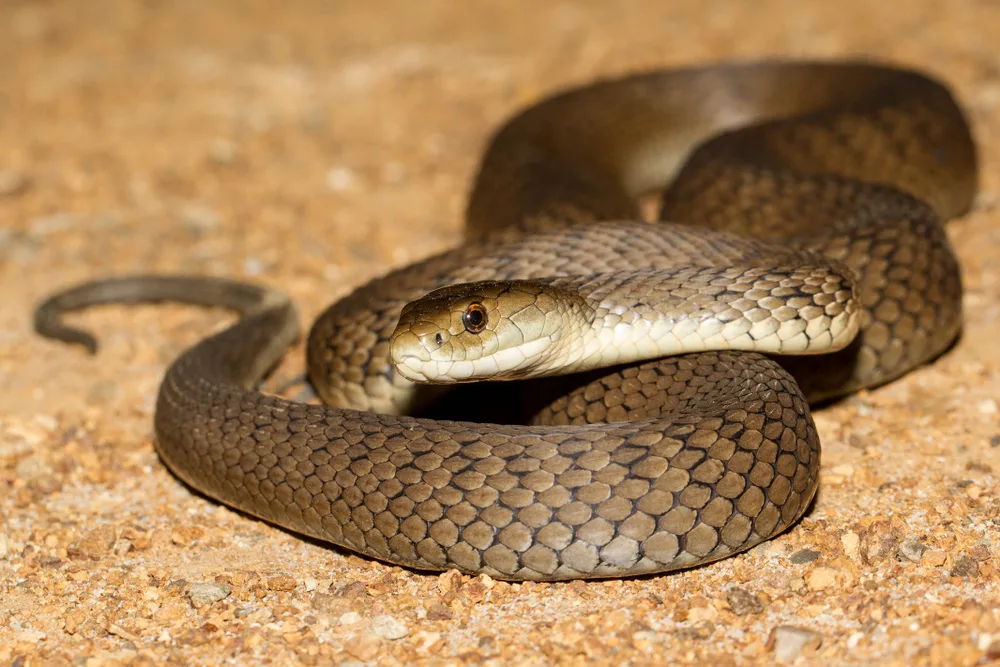Study herpetology to learn to care for reptiles and amphibians while learning about their classification, biology, anatomy & physiology, conservation issues, ecology and husbandry. This online herpetology course is appropriate for enthusiasts, veterinary nurses, zoo keepers, pet shop workers, snake handlers, wildlife park employees and in fact anyone working or keeping as a hobby reptiles or amphibians.
Course Aims:
- Discuss the nature and scope of reptiles.
- Identify credible resources, and begin to develop networking with organisations and individuals involved with the study of reptiles around the world.
- Describe a range of different reptile species, including distinguishing characteristics, their needs (eg. environmental, food, etc) and behaviour.
- Identify and explain the anatomy and physiology of reptiles
- Discuss the nature and scope of amphibians
- Identify credible resources, and begin to develop networking with organisations and individuals involved with the study of amphibians around the world.
- Discuss the nature and scope of amphibians
- Identify credible resources, and begin to develop networking with organisations and individuals involved with the study of amphibians around the world.
- Describe the ecological requirements, reproduction and lifecycles of amphibians
- Describe the behaviour of a range of different amphibian species.
- Explain conservation issues that are impacting upon populations of reptiles and amphibians.
- Explain the management of reptiles and amphibians in captivity upon completion of Herpetology course online
Testimonial:
“It was a really good course in the sense that I felt it provided a sufficient overview of herpetological concepts. I really enjoyed the content of the lessons themselves! I also appreciate the administrative support services. Thank you.” – L. Zambrano, Herpetology graduate
“Definitely enroll, I felt very confident in my studies.” – E. Hodgkinson, Herpetology graduate
“Go for it! It’s very challenging, but you will be so proud with your efforts I’m sure. Tutors and admin staff are also able to assist whenever you need them!” – D Kukeska,Herpetology graduate
Detailed Course Outline
This course is made up a number of lessons or units. Each having self assessment questions, set tasks (practical homework), and an assignment which you can upload online. Click below to read about each of the lessons and what you will learn.
There are 9 Lessons in this course:
1. Introduction to Herpetology
-
- Herpetology Defined
- Introduction to Reptiles
- Animal Taxonomy
- Classification of Reptiles
- Characteristics of Reptiles
- Testudine Characteristics (Turtles)
- Squamata Characteristics (Snakes and Lizards)
- Rhynchocephalia Characteristics (Tuatara)
- Classification of Amphibians
- Amphibian Characteristics
- Building Resources and Developing Networks
- Terminology
2. Class Reptilia (Reptiles)
-
- Reptile Classification
- Water Conservation
- Reproduction
- Order Chelonia (Testudines); Turtles
- Order Crocodilia; Crocodilians
- Order Squamata
- Scaled Reptiles; Lizards (Suborder Sauria) and Snakes (Suborder Serpentes)
3. Reptile Biology
-
- Reptile Anatomy
- Skeleton
- Scales and Skutes
- Ectothermal Regulation
- Coloration
- Respiration and Metabolism
- Food and Digestion
- Senses
- Locomotion
4. Class Amphibia (Amphibians)
-
- Order Anura (Frogs and Toads)
- Order Apoda (Caecilians)
- Order Urodela (Salamanders and Newts)
5. Amphibian Biology
-
- Amphibian Skeleton
- Skin
- Ectothermal Regulation
- Colouration
- Respiration and Metabolism
- Branchial
- Buccopharyngeal
- Cutaneous
- Pulmonic
- Food and Digestion
- Senses
- Locomotion
- Reproduction
6. Ecology of Reptiles
-
- Species Richness
- Constriction
- Injected Venom
- Inertia Feeding
- Biting and Grasping
- Suction Feeding
- Reproductive Strategies
- Viviparity
- Oviparity
- Nest Building
- Habitat Use: Aquatic and Terrestrial
- Basking
- Hibernation
7. Ecology of Amphibians
-
- Use of Habitat
- Temperature Relationships
- Feeding
- Vocal Communication: Advertisement calls, Territorial calls, Release calls, Distress calls
- Social Behaviour
- Dealing with Predators
- Reproduction and Parental Care
8. Conservation Issues
-
- Habitat Change
- Edge Effects
- Pollution; especially Water Pollution
- Environmental Acidification (Acid Rain)
- Pesticides
- Endocrine Disrupting Chemicals
- Spread of Disease
- Invasive Species
- Climate Change
- Spread of Disease
- Disease in Wild Populations
- Trade in Reptiles and Amphibians
- Conservation
- Conservation Genetics
- Endocrine Disrupting Chemicals
9. Keeping Reptiles and Amphibians
-
- Legal Issues
- Special Conditions for Amphibians
- Special Conditions for Reptiles
- Preventing Spread of Disease from Reptiles to Humans
- Housing
- Reptile Captivity Problems
- Reptile Feed and Feeding
- Amphibians and Reptile Species that are in Captivity
- Feeding Amphibians
- General Care
- Common Ailments in Reptiles and Amphibians
- Parasitic Diseases
- Fungal Diseases
- Viral Diseases
- Metabolic Bone Disease
- Thiamine Deficiency
When you have completed the lessons of your Herpetology course, you will be given the option of taking the optional exam. It’s okay if you don’t want the exam, we still issue your Careerline Certificate. For Advanced Certificates however, the exam is compulsory (per module) and are included in the course fee.

